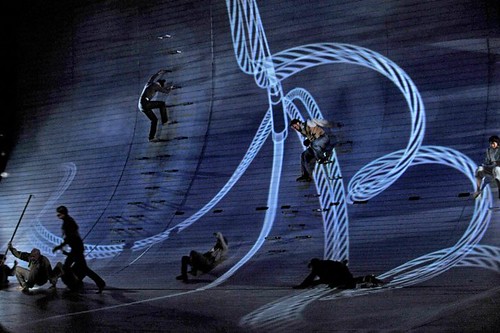But I was more intrigued by many reviews, which continue my discussion on originality of art.
Steve Smith of New York Times wrote: "If Mr. Heggie’s music fell short of the innovation expended in its presentation, its impact seldom disappointed. He borrowed effects widely and deployed them shrewdly."
Gregory Sullivan Isaacs of Theater Jones wrote: "Just as many proteins taste 'just like chicken' to unaccustomed palettes, much neo-tonal contemporary music sounds 'just like Puccini' to the casual listener. Heggie's music is a brew of influences. It is hardly just like Puccini—no more than frog legs taste exactly like chicken. Impressionism, minimalism, folk music, modal tonalities, bi-tonalism, parallelism, Wagnerism and a host of other 'isms' are all artfully combined into Heggie's unmistakable voice. He takes the best of these compositional tools and combines them into something strikingly original, if not completely new."
Something strikingly original yet not completely new. Nothing really grew out of thin air. Puccini didn't come out of nowhere and once his style was established, one can accuse him of copying himself. Often, I mistook a snippets of his Turandot for Madama Butterfly, his Madama Butterfly for Tosca. Even acknowledged rule-breakers such as Richard Wagner, Harrison Birtwistle, Philip Glass are not without influences.
Audience want effective and outstanding works - if they happen to be original, they are doubly blessed. If not, they still enjoy. The insistence on originality and something completely new, can lead to new for the sake of being new, which will often results in narcissistic fantasies.






No comments:
Post a Comment